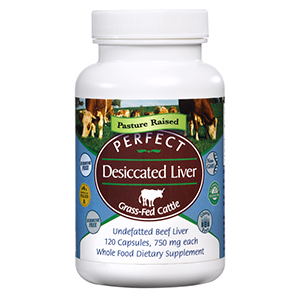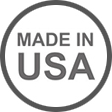Vitamin B9 Folate vs. Folic Acid: Sources and Signs of Deficiency

Vitamin B9
Vitamin B9 is a vital nutrient that is essential to many important functions in your body. Low levels of vitamin B9 have been linked to increased risks for several health conditions. Fortifying food with Vitamin B9 is required in many countries, including the United States and Canada.
You may have noticed the terms “folate” or “folic acid” on the labels of some of your favorite foods or supplements. These two terms are often used interchangeably for vitamin B9, even among health professionals or nutritionists and in lab tests.
This can be misleading, since Folate and Folic acid are actually two similar but distinct substances. While Folate and Folic acid have similar nutritional benefits, it’s important to understand the difference between the two and how they interact with your body.
Folate vs. Folic Acid
Folate is the naturally occurring form of vitamin B9 found in foods and whole-food supplements. Folate supports healthy cell division and fetal development, which lowers the risk of birth defects. It is also essential for muscle growth, and helps repair damaged cells and tissues. Eating a variety of healthy whole foods, such as fruits, vegetables, nuts, and seeds, as well as fortified foods, is a good way to ensure you’re getting a sufficient amount of folate.
Folic acid is a synthetic form of vitamin B9 made in a lab, also known as pteroylmonoglutamic acid. It’s found in many low quality supplements and processed foods, such as flour and breakfast cereals. Unlike folate, folic acid is not always converted in your digestive system - it actually needs to be converted in your liver or other tissues. This process can be slow and inefficient for some people, depending on their unique metabolism. Consuming fortified foods or taking folic acid supplements could contribute to excess unmetabolized folic acid buildup often found in people’s bloodstreams, which is problematic since high levels of unmetabolized folic acid are linked to various health problems. These are all very good reasons to want the folate form of B9 over the synthetic form.
Folate Deficiency
Lack of sufficient dietary folate can lead to what is known as folate deficiency. It can take as little as several weeks for a folate deficiency to develop. Some health conditions such as celiac disease, or certain medications can cause folate deficiency, as well as genetic mutations that prevent your body from absorbing and converting folate into 5-MTHF. If you have MTHFR, a genetic mutation that inhibits proper absorption of folate, it’s recommended that you take methylated folate in order to prevent deficiency.
Folate deficiency can also cause anemia, which is a lack of red blood cells. Anemia can negatively affect tissue functions, because you need red blood cells to transport oxygen to your tissues. Folate supplements are recommended for women who may become pregnant, since folate deficiency can cause birth irregularities.
Symptoms of folate deficiency include:
- fatigue
- gray hair
- mouth sores
- tongue swelling
- growth problems
- persistent fatigue
- weakness
- lethargy
- pale skin
- shortness of breath
- irritability
Since folate is a water-soluble vitamin, it dissolves in water and isn’t stored in your fat cells. Excess levels of water-soluble vitamins are also released through urine. Therefore, it is important to keep taking folate, since your body doesn’t maintain a reserve of it. The main factor that impacts your folate levels is your diet. A diet low in fresh fruits, vegetables, and fortified cereals is the most common cause of folate deficiency. Overcooking your food can also sometimes destroy the vitamins. Health conditions that interfere with proper absorption in the gastrointestinal tract can also cause folate deficiencies. Some of these conditions include:
- Crohn’s disease
- celiac disease
- certain types of cancers
- severe kidney problems
- sickle-cell anemia
- Irritable bowel syndrome
Your unique genetics can also impact your body’s ability to absorb and metabolize folate. Some people have a genetic mutation that hinders their body from properly and efficiently converting dietary or supplementary folate to its usable form (5-MTHF). It’s also important to be mindful of any medications you are taking that might contribute to folate deficiency. Some medications linked to folate deficiency include:
- phenytoin (Dilantin)
- trimethoprim-sulfamethoxazole
- methotrexate
- sulfasalazine
According to this study, “Energy production and the rebuilding and repair of muscle tissue by physical activity require folate and vitamin B12 as a cofactor.” It is recommended that adults consume at least 400 mcg of folate per day to prevent a deficiency. In athletes, insufficient folate levels in athletes are surprisingly common.
Drinking alcohol also has a negative impact on folate absorption, because it increases folate excretion through urine. If you want to maintain healthy folate levels, it’s best to reduce your alcohol consumption.
Folate deficiency is diagnosed with a blood test. Pre-natal checkups often include testing for folate levels. There are also at-home testing kits you can purchase if you want to check your folate levels yourself.
Natural Sources of Folate
Other foods high in folate include:
- peas
- citrus
- fruits, such as bananas and melons
- tomato juice
- eggs
- beans
- legumes
- mushrooms
- asparagus
- kidney
- poultry
- pork
- shellfish
- wheat bran
- fortified cereals
- broccoli
- avocados
- brussels sprouts
- leafy greens such as spinach and lettuce
- peanuts
The best way to counteract folate deficiency is to increase the amount of folate-rich foods in your diet, or to take a folate or folic acid supplement. According to the NIH, beef liver is one of the highest-concentrated sources of Folate. A 3 ounce (85 gram) serving of cooked beef liver contains 212 mcg of folate - about 54% of the daily value.
If fresh beef liver is not your cup of tea, you can take beef liver supplements instead. Perfect Desiccated Liver is the best natural, glyphosate-free, grass-fed, and pasture-raised beef liver supplement on the market and offers 13 micrograms of folate per 3g serving. If you’re looking to add a natural and rich source of Folate to your diet, look no further!












